Welcome to my blog!
Every morning, I begin with a cup of coffee and 15 minutes of free thinking. I write down everything that comes to mind, from new ideas to thoughts that emerged overnight. This is where I develop and refine my new research. You'll find some repetition and ideas still in progress. Some might seem unusual or unclear at first, but that's part of the journey! I'm excited to share how my ideas form and evolve.
More Movement of Epistemic Classes
Examining the possibility of non-violent change in addressing epistemic oppression and the potential for a "quiet revolution" in rebalancing societal powers.
Marxism is a dynamic theory, in which classes are in constant interaction until the lower classes reach a level of exploitation that entices them to revolt against the upper class. Is a revolution necessary? I don’t think so, because it’s not too difficult to imagine a scenario in which a society engages constructively in the dialectical struggles and seeks to reestablish a more equitable distribution of power. There are pockets of historical change in which a ruling population lifts their oppressed counterparts and provides them genuine means to rehabilitate their interaction.
In Quebec, the government followed the population’s will to regain autonomy and self-determination in what is called a “quiet revolution,” one that didn’t operate with violence and the eradication of the richer classes, but rather one that realigned power so that everyone could have a fairer chance. Yet, unless the upper side of an oppressive relationship between classes genuinely acts to redress inequalities, the lower side must shake things up enough to force a change or risk the collapse of the system.
Yesterday, I talked about epistemic classes and the need for a richer classification of society that recognizes inequalities in power beyond material goods, namely the ability to contribute to the knowledge, beliefs, and values of a society, as well as the freedom to fulfill one’s life while contributing to society in alternative ways. But like with material goods, some portions of society have a greater grip on the epistemic structures; they choose what is to be published and taught, what is to be emphasized or forgotten, and the narrative of a society that secures and justifies their disproportionate epistemological influence. Unless marginalized people who do not fit in the upper side's epistemological patterns and beliefs have room to manifest their experience and seek a fair place in society, the upper side ends up reinforcing a structural system that silences narratives and erases identities.
What does it take to rehabilitate this epistemic oppression short of a revolution that shakes structures enough to give room for their stories?
The Movement of Epistemic Classes
Exploring the limitations of traditional Marxist theory in addressing modern societal complexities and the emergence of epistemic powers that shape contemporary inequities.
In traditional Marxist theory, society is divided into socio-economic classes based on the possession and production of goods. It’s a material division of society based on economic status. Those who are not owners come to be exploited, and an unequal distribution of power yields an unequal and inequitable society. Marx claimed that the movement of social classes happens by revolution and predicted that the proletariat would revolt against the bourgeoisie and rehabilitate the distribution of power in a more equitable way.
This analysis of the movement of classes is rather thin, ultimately reducible to an economic analysis of equity in society. This approach works well in a population that is otherwise homogeneous. If people perform social roles that are predictable, uniform, and stable, within a society where culture and race are relatively homogeneous, then it makes sense to separate them in a material way because the other factors are "kept equal" by default.
In a modern context, researchers in critical theory have come to endorse a richer notion of power, including not only material power but also epistemic power—encompassing cultural, moral, ethical, religious, and spiritual dimensions, and what I suggest as logical power. Because our populations are mixed and complex, and because we have created room for the emergence of alternative identities and realities, the carving of societies into material classes hides axes of oppression that are pervasive. There is inequity that happens in the public sphere where people’s identities, lived experiences, and worldviews are silenced, forcing marginalized groups to conform to the norm or be radically excluded.
A new type of social movement is now observable, whereby the oppressed are seeking epistemic rehabilitation. I’ll leave you with this question: if powers are not only material but also epistemic, is the movement of epistemic classes one of revolution?
Is Boolean Negation Explosive?
Boolean negation inherits the law of non-contradiction from mathematics, but does it also get the rule of explosion? Exploring the implications of Boolean negation for logical consistency and the potential for coherent reasoning in the presence of inconsistency.
George Boole realised that truth and falsity could be analysed mathematically, and that negation is an operator that flips between the two. The negation of A can be computed with the formula: ~A = 1 - A. If you take 1 to be truth, and 0 to be false, and you assume that A is true, then ~A = 1 - A = 1 - 1 = 0, so ~A is false. And if A is false, then ~A = 1 - A = 1 - 0 = 1, so ~A is true. So we get that ~A = 0 iff A = 1 and ~A = 1 iff A = 0.
While Boole’s insight is quite simple from a modern point of view, it changed the way people research logic and made it a topic suitable for mathematical research. One feature that Boolean negation inherits from the mathematical treatment is the law of non-contradiction. If a proposition and its negation were both true, then we would get that 1 = 0, which is mathematically absurd. So A and its negation are mutually exhaustive.
My question is why Boolean negation is also explosive, in the sense that if a proposition A is true, and also its negation ~A is true, then everything is true. I’m not asking why it satisfies the law of explosion expressed in an object language as (A & ~A) -> B, which is easy to compute. I’m asking why the inference rule of explosion A, ~A |= B holds for Boolean negation.
The best answer I can think of is that the rule of explosion is necessary for mathematical reasoning because mathematics is maximally intolerant to contradiction and the rule of explosion is what reduces triviality to inconsistency. In mathematics, inconsistency is as bad as it gets and everything becomes true. There’s no room for coherence with inconsistent material. The second answer is that the rule is derivable, as per Alexander Neckham's old argument, which you can find in "Logic in the Wild."
Either way, that Boolean negation obeys the rule of explosion isn’t entailed by a mathematical treatment of negation like the law of non-contradiction follows, but rather obeys explosion because mathematical reasoning imposes it. That leaves wiggling room for a modern paraconsistent logician who has principled reasons for thinking that explosion isn’t a valid rule of inference. If it isn’t a valid rule, then Boolean negation doesn’t have to follow it, in which case the main characteristic of Boolean negation inherited from a mathematical treatment is that the law of non-contradiction holds. It leaves it open, however, for coherent reasoning in the presence of inconsistency.
Why Logical Praxis?
Exploring the intersection of practice and theory in logic, and how a richer approach enhances both.
Why logical praxis? On the one hand, there’s practice; on the other, theory. Practice is about applying logic to different contexts, producing arguments, establishing beliefs or theories, communicating ideas, or engaging in dialectical enquiry. Theory is about establishing, understanding, and meeting logical standards for coherence.
In classical logic, the standards are consistency. Establishing these standards involves developing a theory of validity, using formal languages and models to understand truth preservation and contradiction avoidance, and choosing axioms and rules to create proofs that meet these standards. All that is theoretical. Practice, on the other hand, involves getting students to translate arguments into formal language, laying them out in a recognisable standard form, and testing them for validity. Practice also includes creating models for “real-world” concepts like arithmetic, knowledge, truth, or other ideas that allow for conceptual analysis and formalisation.
This traditional dichotomy between practice and theory is rather limited. There’s a much richer world out there fit for logical treatment, which is what "Logic in the Wild" explores, with the slogans of logic being the “guardian of coherence” and providing a “neutral space of dialectical enquiry.” With this broader framework, practice involves seeking coherence in arguments, beliefs, or theories and communicating constructively in a neutral space of enquiry. Theory, accordingly, becomes richer because coherence can be measured in various ways, with consistency being only one method suitable for mathematical contexts. For more fluid contexts, other standards are required—standards that are neither too strict to prevent progress nor too loose to allow incoherent thought.
It’s because both practice and theory become much richer in this approach that praxis becomes crucial. Praxis is the meeting point of practice and theory, the link between the two that allows for better theories that are fit for purpose and applications that are appropriately guarded.
Gender Symbolism in Logic
Exploring Andrea Nye's critique of logic and the challenges of addressing gender symbolism in philosophical discourse.
Andrea Nye developed a thorough rejection of logic in her book *Words of Power*. I take the book to be a form of “intellectual impression,” in which Nye articulates an interpretation of logic based on her lived experience as an outsider of the field, not part of the “gentlemen’s club,” and told about a way to access universal knowledge with maximal abstraction. Instead of presenting her perspective by way of arguments, her book is a response. I’ve been writing about this, and it’s a challenging text to write about, especially because it isn’t written to provide articulated reasons. But I fully respect the approach because I don’t think that logic is necessary or even sufficient for effective (read convincing) communication. Rhetoric has many tricks up its sleeve, and articulated reasons aren’t always the ones to favour.
While Nye may not present arguments in the traditional sense, she writes in coherent ways, which according to "Logic in the Wild," is all you need for logical reasoning to be established. What she’s not submitting to is the practice of seeking coherence with the strict logical standards of Twentieth-century logicians, those to whom the critique is ultimately directed. What’s her response? That logic is a male-fabricated tool that has liberated men in the public and academic spheres, eventually elevating them to the level of God and universal knowledge via abstraction, while keeping women away from it, back in their households, with their private knowledges.
One thing I find particularly difficult to write about is achieving fairness towards Nye’s belief about the difference in knowledges between the sexes. There’s a difference between saying that logic is masculine and passion (or emotion?) is feminine and saying that there are different ways of accessing knowledge—via logic or via passion—and that the former is traditionally ascribed to men, the latter to women. To say that logic is masculine is to commit the fallacy of gender symbolism, i.e., to ascribe gender to inanimate things. Gillian Russell’s reply to Nye isn’t to deny the impression she articulated but to rectify the slippery gender symbolism in the articulation.
References:
Nye, Andrea. Words of Power: A Feminist Reading of the History of Logic. 1st ed. Routledge, 2019. https://doi.org/10.4324/9780367854447
Russell, Gillian. “Logic: A Feminist Approach.” In Philosophy for Girls, by Gillian Russell, 79–98. Oxford University Press, 2020. https://doi.org/10.1093/oso/9780190072919.003.0007
What does feminism have to do with logic?
Examining the historical exclusion of women from the domain of logic and how feminism reveals the unequal distribution of epistemic power and the fabrication of gendered reasoning.
There’s no logical difference between men and women regarding their logical abilities or faculties. Do I really need to say that? Today? European men have created a space of enquiry where only men were allowed. Logic and reason, said the ancient Greeks, were for men. For women? Emotions and passion. Emotions and passion had to be tamed by logic and reason. Logic vs. reason; a very old saga. But that was entirely fabricated by men, starting with Aristotle in logic, and propagated over the ages.
With the Enlightenment and the Cartesian abstracted ego, man elevated himself to the equal of God, becoming the source of truth, and leaving women below. Man became the equal of God while women were kept slaves to their passions. Eventually, with the formalisation of logic, even Man got abstracted away, for what? For Mathematics? For Truth? Once women managed to leave their homes and regain access to society, there was nothing left but pure logic, man’s best friends, the totally abstracted and neutral ways of universal thinking. How dare she ask about her embodied self and situated knowledge? How dare she question the origins of the pure laws of thought? How dare she doubt the glorious male ego?
What does feminism have to do with logic? Precisely that! To reveal a history of self-gratification and abstraction. To reveal the unequal distribution of epistemic power and shared epistemic tools. To reveal how the fabric of society inherited a fabricated structure of reasoning, a combative and competitive quest for truth, the imposition of masculine coherence in every enquiry.
Logic and Harmony
Exploring how Ancient Greek notions of harmony reveal the essence of logical thinking as a pursuit of coherence, connecting music, mathematics, and the cosmos.
Yesterday, I wrote about the logic of things, partly because people sometimes use logic in that way, and also because I’m sometimes tempted to think that way but resist due to my training. In "Logic in the Wild," I discuss logic as the guardian of coherence, but I leave the definition of coherence open. This is intentional. If readers learn to engage with coherence rather than content, I’ll be proud of them, regardless of their interpretation of coherence.
One thing I’ve learnt while writing the book is that logic is much more than the symbolic game I played for twenty years. Once you start thinking about coherence instead of obsessing over consistency, you can shed new light on old, difficult questions or those dismissed by symbol manipulators. The case I want to present this morning is the way Ancient Greeks talked about harmony. Harmony, for them, was much more than pleasing sound ratios; it was a way of being, for the soul to be balanced, and for the universe to be organised. Literally, there were theories about the harmony of the soul and the harmony of the spheres. Music was just the introduction, exciting a person by making them feel harmony. As with other bodily pleasures, hearing harmonious sounds would inspire the youth to seek harmony within themselves and direct their attention to the universe, the movement of planets, and marvel at the universal harmony. Mathematics developed to treat music was thus constructed alongside mathematics for the motion of planets.
What does this have to do with logic? I realised that harmony for the Greeks is one way of seeking coherence. To find proportions of sounds that are pleasing and correlate them with the proportions of positions and movements of planets in the sky, and to understand this as the same kind of patterns that regulate the soul, is to seek coherence in the universe. It’s not about finding content or truth in things but seeking a coherent whole that makes sense of it all. And that, I submit, is essentially logical thinking. Furthermore, it is logical thinking directed at things, allowing us to talk about the logic of things.
Modal Realism and the Existence of Possible Worlds
This post explores David Lewis's theory of modal realism, which posits the existence of possible worlds to account for our modal discourse, and asks whether this view is coherent and cogent.
Modal realism is a view articulated by philosopher David Lewis to account for our modal discourse and posits the existence of possible worlds. Possible worlds are complete and isolated ways things could have been. What things? Everything, including the laptop I’m typing on, the chair I’m sitting on, the coffee I’m drinking, and my cat asking at this very moment to come inside (hang on… she’s inside). All that plus everything from the start to the end of everything (if there is a start and an end). Everything. But things could have been different. I could be writing this with pen and paper. I could have a dog instead of a cat, or a pet pig or pet rat. The Universe could have its fundamental constants set to values that don’t allow for life, and I wouldn’t exist. Pretty much everything could be different. All the ways everything could be different are possible worlds. For Lewis, what makes them possible is that they are consistent. Here logic plays a role, in ruling out worlds that are impossible because they are incoherent.
How does this account for our modal discourse? Our modal discourse is when we believe things to be possible or necessary. It’s possible for me to have a dog and not a cat. It’s possible for me to be writing this with pen and paper. Why? Says Lewis: because there are possible worlds in which I have a dog and not a cat, and in which I’m writing a blog with pen and paper (maybe it then gets transcribed by AI and posted on whatever the internet is and where blogs get posted in that world). It’s impossible, however, for me to be the first living thing to set foot on Mars and find bacteria somewhere on Mars. It’s impossible because that is the description of an inconsistent scenario, one in which I’m the first living thing on Mars even though there were already living things on Mars, a contradiction. So possible worlds can substantiate our modal discourse. So far, so good.
The incredulous step with Lewis is to argue for the real existence of those possible worlds. Why? Because they offer the best explanation for our modal discourse. One could think alternatively that they are a creation of the human mind, that they are a mere logical or epistemic tool, that they are linguistic entities, or that they aren’t necessary to make sense of our modal discourse. All those options, and others, have been entertained and defended at length by many a philosopher, and, says Lewis, none live up to the accuracy and simplicity of the belief that possible worlds exist. They exist in the same way our world exists. And their existence is what makes sense of our modal discourse. What do you reckon? The view is coherent. But is it cogent?
Logic as an Epistemic Tool
This blog post explores the role of logic as an epistemic tool, clarifying that while it does not directly determine truth, it is crucial in structuring knowledge. The discussion also touches on the concept of epistemic injustice and how denying logical tools can perpetuate systemic biases.
What might it mean to say that logic is an epistemic tool? A straightforward response is that it helps in the production of knowledge. However, this doesn't imply that logic determines what is true or false. In Logic in the Wild, I address the “Why not truth?” question, which challenges the relevance of logic if it cannot definitively adjudicate truth. If something is known to be false, why entertain logical arguments supporting it? And if the truth of the reasons supporting a belief is uncertain, why invest time in logical analysis?
These are pertinent questions, yet posing them does not render them unanswerable. Realizing the true function of adopting a logical mindset reveals why such questions themselves can obstruct informed reasoning, particularly within a community. Returning to our initial inquiry: how does logic function as a tool in knowledge production if it does not generate knowledge itself? One part of the answer is that while logic alone does not suffice to produce knowledge, it is sometimes necessary for it. You can have arguments that contain only true content but lack logical coherence, thereby failing to secure genuine knowledge. Thus, logic's contribution is that it is necessary to facilitate knowledge production.
This topic became particularly salient to me while extensively reading the literature on "epistemic injustice," which describes how such injustice wrongs individuals in their capacity as knowers. One form of epistemic injustice, as frequently discussed, involves denying access to shared epistemic tools. Although these discussions are prevalent, the precise definition of what constitutes an epistemic tool still invites further exploration. It's obvious to me that logic is one such tool that has historically been withheld, a practice with profound historical and cultural implications. Aristotle, for example, perpetuated the notion that women are not logical but emotional, reinforcing a patriarchal dichotomy between emotion and logic, male and female. Recognizing logic as an epistemic tool sheds light on how its denial has contributed to systemic epistemic injustice, particularly against women. This perspective invites a deeper understanding of logic not just as a theoretical framework but as a practical necessity in challenging and overcoming these ingrained injustices.
The Case for "Logic Duty": Beyond Social Media's Quick Judgments
This post challenges the rapid-fire nature of social media interactions and proposes the concept of "logic duty" as a civic responsibility to deliberate on societal issues, encouraging deeper understanding and coherent decision-making beyond the divisive echo chambers.
If I could, I would get rid of social media. Why? Because it encourages quick thinking, opinion agreement-seeking, judgment, and rejection, all of which effectively block the logical thinking and benefits that logic brings to society. What's wrong with quick thinking? It fails to filter out psychological biases. And opinion agreement-seeking, embodied by the "like" button on Facebook and similar platforms, polarizes debates. If Gill expresses an opinion I share, but in a slightly stronger formulation than I would accept, I might still feel compelled to 'like' it to show support for those who share my views and to signal our collective strength to others.
What’s wrong with judgment and rejection? It might seem obvious, but from a brief social media post, people often generalize to the whole identity of a person and reject them as fundamentally flawed. This goes against logical thinking because, as I elaborate in Logic in the Wild, logical thinking involves slowing down, taking time to consider various points of view, and trying to find coherence among our opinions. Logical thinking encourages us to slow down and think things through collaboratively, not combatively.
I would eliminate social media because, while it does generate some benefits and allows connections that would otherwise be very difficult, all things considered, I feel social media do more harm than good. Of course, that’s a fantastical and impractical idea. Social media are unfortunately here to stay. So, what’s the alternative? I propose introducing a “logic duty” in society. Think of it like jury duty, where any citizen can be called upon to spend a certain amount of time serving a civic duty in a trial until a reasonable verdict is reached that represents a deliberative decision from the community.
Logic duty would involve being called upon to spend a certain amount of time serving a civic duty to deliberate on dialectical issues—issues that are controversial in society, that have established camps and shared opinions that are incoherent as a whole. A “logic jury” would be tasked with finding coherence among diverging views and proposing a resolution back to their community or society. I didn’t invent this idea. It’s modeled after deliberative democracy, and some experiments have already been conducted, which suggest hope for an alternative way for society to debate deep issues other than relying on keyboard warriors in social media wars.
Logic in Action: From Ancient Theories to Modern Debates
This post examines how logic extends beyond mere truth-seeking, illustrating its role in understanding coherence in historical scientific theories and contemporary societal debates, from ancient optics to modern sports equity.
What are examples of logic in use?
Answering this isn't straightforward. It depends on whether you mean a clear example of someone using logic to make a decision or to arrive at truth. I'm not even sure such an example exists, as that's not primarily what logic is useful for. Instead, I prefer to illustrate how logic operates. One aspect is that logic allows us to seek coherence beyond mere truth. Though I'm no expert, I enjoy exploring ancient science and seeing how theorists used mathematics to frame their theories, explain the world, and make predictions—just as we do today. Yet, many of these theories are false. Consider optics, for example. Ptolemy believed that visual rays emanated from the eyes, scanning the world around us. He thought of sight as similar to touch, or how a visually impaired person might use a walking stick to navigate. While Ptolemy was incorrect—there are no visual rays—he wasn’t foolish. His theories were coherent, and it’s fascinating to see how much mathematics he and other ancient scientists developed, including theories about mirrors and image distortion.
Isaac Newton developed a universal theory of gravity that we still teach and use today to build bridges and send people into space, yet his theory is technically false, replaced by Einstein's theory of gravity. Despite long debates about the fundamental assumptions Newton made, the coherence of his theory helped it survive the test of time and remain a pillar of modern science.
In everyday life, a similar appreciation for logic can help us understand others' views without fixating on the absolute truth of their statements. It takes a measure of humility to refrain from challenging the truths in their ideas and instead seek coherence in their views as a source of learning.
Another example of appreciating logic can be seen in debates over controversial issues, such as the ongoing discussion about equity between male and female players in tennis. Historically, men have earned more than women in grand slam tournaments because they play best of five sets, while women play best of three. This disparity was defended by the slogan “equal pay for equal play,” suggesting that as long as women played shorter matches, they shouldn’t receive equal prize money. In practice, however, achieving this is impractical—not because of any supposed inability of women to play longer matches, but because the two-week duration of tournaments does not allow time for everyone to play best of five sets. A logical solution to achieve "equal play" would be to have men also play best of three sets, particularly if all players switched to best of five only for the semi-finals and finals. The logical flaw in the original argument is that it actually undermines the case against equal pay and aligns more logically with rectifying the pay gap by ensuring that everyone plays the same number of sets and receives equal pay. While the intention behind the slogan is to preserve the status quo, a logical resolution offers an opposite solution.
Bridging the Gap: How Logic Connects Specialized Academia and Everyday Reasoning
This post explores the perceived divide between the complex theories of formal logic and the practical logic we employ daily, bridging the gap between specialized academic knowledge and everyday reasoning.
How significant do you think the gap is between everyday reasoning and a strictly formal system?
Perhaps the real question is whether such a gap truly exists, given that logic is universally applicable. "Logic in the Wild" demonstrates this through numerous examples and applications, showing that the same patterns of reasoning found in philosophy, theology, mathematics, and science are also present in our daily lives. In this sense, logic bridges the gap between specialized academic knowledge and everyday reasoning. Once you learn to recognize coherence and patterns in reasoning, you’ll discover that much of what happens in specialized fields simply adapts these familiar strategies to new content. You might even find yourself engaging with disciplines you previously thought were completely out of reach.
However, when examining the practice of specialized logic, there indeed appears to be a vast chasm separating it from everyday life. As a trained logician who has studied at prestigious institutions and published in top logic journals, I still encounter papers in mathematical logic so filled with acronyms and deep theories that engaging with them feels like it would require an entirely new PhD. This isn't unusual in itself. Consider tennis, a sport I'm passionate about. According to a survey, around 70% of amateur tennis players believe they could win a game against professional players. In reality, an amateur like myself would be fortunate to score a point, perhaps from a pro's double fault or through a lucky, unreturnable shot. The gap between players like Federer or Alcaraz and everyday players is profound.
Yet, where I think there may be a more significant issue with the logical gap is in how mathematicians have dominated the field, creating a detachment not just from everyday reasoning but also from the intellectual curiosity about reasoning among educated non-academics who enjoy more accessible academic writing and popular science. I’m generalizing here, and there are certainly exceptions, but the trend shows that philosophers, particularly logicians, have not engaged the general public as effectively as scientists like Einstein, Hawking, or Neil deGrasse Tyson, who have authored popular science books and filled stadiums with their presentations.
When it comes to teaching the fundamentals of logic, the most that top logicians have managed is to produce textbooks for introductory university courses in symbolic logic. The real gap, as I see it, lies in public engagement and accessibility. This is the gap I aim to address through my current work, making logic both relevant and applicable to a broader audience.
What constitute epistemic injustice?
This blog post explores Miranda Fricker's concept of testimonial injustice, examining whether epistemic injustice is appropriate unless knowledge is somehow objective.
Yesterday, I discussed with my students Miranda Fricker's *Epistemic Injustice*, focusing on the first chapter about testimonial injustice. She describes it as a “distinctively epistemic injustice, in which someone is wronged specifically in her capacity as a knower.” In its systematic form, testimonial injustice occurs “if and only if a speaker sustains a credibility deficit owing to identity prejudice in the hearer; thus, the central case of testimonial injustice is an identity-prejudicial credibility deficit.” Two questions emerge as particularly salient: 1) Why is the book titled Epistemic Injustice if the injustice discussed is testimonial? and 2) What distinguishes testimonial injustice as epistemic, rather than merely an identity-prejudicial case involving an epistemic element? Our discussion group resolved these questions by highlighting that this work situates itself within analytic epistemology, presupposing a concept of knowledge as some form of justified true belief, or more colloquially, contrasting “objective knowledge” with “subjective knowledge.”
Epistemic injustice necessitates a concept of knowledge that is communal and measurable, so that bias against individuals' credibility in acquiring or sharing this knowledge is recognized as unjust. For instance, I know the circumstances of my birth through my mother's testimony, who has a justified true belief about the event. Contrast this with a court witness who, despite having detailed, justified true belief (or "objective knowledge") of a crime, is dismissed due to prejudices about their race or gender, which historically is not uncommon. This exemplifies an identity-prejudicial credibility deficit because their contribution to knowledge is disregarded despite possessing relevant knowledge.
To clarify the distinction between "objective knowledge" and "subjective knowledge," I present my students with a thought experiment. I claim that 2 plus 2 equals 4 and challenge them to dispute this fact, leading to discussions on the definition of numbers. These discussions sometimes evoke a strawman version of a subjectivist stance: "I have my mathematics, you have yours, and who's to decide?" I'm not convinced this scenario constitutes epistemic injustice under Fricker's analysis because it doesn't undermine an individual's capacity as a knower. Instead, it highlights a domain of subjective knowledge where, if knowledge is inherently subjective, the concept of injustice may not apply as every person harbors their unique knowledge.
This brief overview, constrained by space and time, aims to shed light on how epistemic injustice pertains to societal and cultural issues, including indigenous knowledge. If knowledge is deemed equally valid in a subjectivist sense, it’s questionable whether epistemic injustice is a fitting framework to describe the wrongs done to individuals' knowledge claims. The ensuing injustice is rather of the standard prejudicial case, not particularly about knowledge. The injustice becomes epistemic when a credibility deficit pertains to an individual’s capacity to access something akin to justified true beliefs or objective knowledge, marking it as epistemic if the oppressor denies knowledge to the oppressed for identity-prejudicial reasons.
Reference: Fricker, Miranda. *Epistemic Injustice*. Oxford University Press, 2007. (https://doi.org/10.1093/acprof:oso/9780198237907.001.0001)
Embracing the Beauty in Everyone: A Lesson from a Friend's Faith
Exploring a friend's journey with Jesus, this post reveals how his faith leads to a profound appreciation for the beauty in every individual, transcending traditional religious divides.
A friend of mine harbours a profound affection for Jesus. Curious, I once inquired about his denominational allegiance, only to learn he harbours no concern for the divides among Christian sects. His focus lies squarely on the teachings of Jesus and the call to love others. The fervour in his eyes when he discusses this topic is unmistakable.
Recently, I checked in to see how he was faring, and he expressed great happiness, attributing his well-being to Jesus once more. This piqued my curiosity about what Jesus adds to his life. Initially, I anticipated he might speak to the sense of purpose or direction Jesus offers. Yet, his actual response ventured down an unexpected path. He reflected on how Jesus helped him recognize the beauty in God’s creation that is present in everyone. He articulated a belief that we are all made in the image of God, and if we choose to look, we can see that divine reflection in each person.
This perspective, he explained, teaches him to appreciate everyone's inherent beauty, devoid of self-centredness or judgment. Observing him, one can't help but notice the genuine generosity that radiates from him. He engages with everyone with an infectious enthusiasm and positivity, making you feel truly valued in his company.
Linking this to a logical concept from "Logic in the Wild," I would argue that my friend possesses a coherent worldview. His passion for Jesus furnishes him with a framework for engaging with his community and professional life. My personal views on Jesus and Christianity aside, I find a compelling coherence in his outlook. One need not share his religious convictions to recognize the merit in seeing beauty in everyone. While simpler paths to this attitude might exist, invoking Ockham’s razor seems misplaced here.
Engaging in debates over Jesus and Christianity misses the point entirely. The positive and inspiring energy he exudes is what captivates me. Inspired by his example, I, too, would like to be able to see the beauty of everything reflected in everyone.
Beyond the Bedroom Door: The Multifaceted Nature of Coming Out
Exploring the depth of coming out, this post argues it encompasses far more than sexual preferences, embodying a rich identity and presence within the community.
What does coming out as a gay man mean? I was talking to a friend recently, someone who grew up as a gay man at the very end of the last millennium. He claimed that coming out is essentially announcing one’s sexual preferences, which deviate from the patriarchal, heterosexual norm and have been pathologized by science and criminalized by governments in the previous couple centuries, as analyzed by Michel Foucault. In Canada, Pierre-Elliott Trudeau decriminalized homosexuality in the 1970s, stating that the government had no business in the bedrooms of the nation. The evolution from the early to the late twentieth century in understanding what it means to be a gay man shifted from viewing it as a criminal pathology to regarding it as sexual practices that deviate from the norm but are tolerated so long as they occur behind closed doors. Thus, coming out has been minimized to announcing what one prefers to do behind those closed doors. Maintaining this simplicity is convenient for the orthodoxy because it requires minimal change in its values, practices, and roles. As long as what gay men do remains outside of the public eye, everything can proceed as before.
However, for the individual revealing their identity, reducing it to sexual practices creates a form of injustice, perhaps a hermeneutical injustice, as elaborated by Miranda Fricker. Being a gay man around 2020 in Canada signifies a much richer identity. It means engaging in one's community with a whole way of living, including reproduction, raising children, and potentially redefining what it means to be in a romantic relationship or marriage. Coming out signifies much more than disclosing one's sexuality; it is about adopting a way of living, a presence in the community, a being in the world that cannot be reduced to sexual activities behind closed doors. What happens behind closed doors is indeed nobody's business, and coming out should not be diminished to a mere admission. This perspective is from gay men so far, my standpoint.
But coming out for the rest of the people under the rainbow still needs to be fully understood. If the coming out of gay men could be simplified to announcing one's sexual deviation while preserving everything else as equal, this does not generalize to lesbians, trans individuals, asexuals, and the rest of the rainbow. Their identities are much richer than their sexuality and are more visible and still clash with patriarchal norms. My point, then, is that reducing a coming out to an announcement of sexuality does a form of violence by erasing identities. We can, and must, do better.
Unraveling Classical Logic: A Journey from Ancient Roots to Twentieth Century Precision
This post explores classical logic, not as the logic of ancient times, but as a twentieth-century European development, focusing on its evolution from public debate tools to the formal languages shaping modern mathematics.
What is Classical Logic? A 15-Minute Overview
Classical logic, which I prefer to call Twentieth Century logic, is a distinctly European innovation. This discipline is not 'classical' in the traditional sense of deriving directly from ancient philosophies, nor is it similar to classical music, which emerged from the Enlightenment adorned with a veneer of sophistication in churches and courts. Instead, it signifies the rigorous mathematization of an ancient discipline, formalizing thought processes and striving for universal and necessary foundations.
Though not the logic of the Ancients, classical logic inherits and transforms the legacy of those early thinkers over millennia. My narrative, as detailed in Logic in the Wild, suggests that the genesis of logic lies in the necessity to excel in public debates, accompanying the emergence of politics and decision-making through deliberation. This deliberation process—formulating, articulating, and defending ideas—benefited from logical structures that guided coherent argumentation. Logic served as a repository of reliable argument forms, known as syllogistic logic.
During the medieval period, logic was a vibrant field of study, aiming to harmonize Christian dogmas with pagan philosophy and seeking coherence in their amalgamation. Logicians tackled paradoxes such as reconciling God's omniscience with human free will, divine justice with mercy, or creating a rock so heavy that he can't lift it.
The Enlightenment saw a temporary decline in logical pursuits as the burgeoning of new sciences, along with philosophical and mathematical advancements, diverted attention. Syllogistic logic sufficed for then-current needs. However, as mathematicians delved into increasingly complex theories, dealing with the infinitely small and large, they encountered foundational uncertainties. This prompted a reassessment of logical thought, gradually incorporating mathematical operations into logic.
At the dawn of the twentieth century, Frege identified language as a source of uncertainty in mathematical constructs, advocating for new, unambiguous logical languages. These formal languages allowed for the articulation of mathematical principles as necessary truths. With solid axioms and logical rules, mathematics could ensure the integrity of truths from premises to conclusions, providing a stable foundation. That was the dream.
But then, the same paradoxes that preoccupied medieval logicians, as they delved into the extremities of theological notions, resurfaced when twentieth-century mathematicians pushed the boundaries of truth. This historical echo turned twentieth-century logic into a quest for constructing theoretical towers, a narrative thoroughly explored in Logic in the Wild. Consequently, classical logic stands as the culmination of a century's mathematical effort to structure formal languages within these meticulously crafted theoretical structures. Time’s up!
Decoding Biological Narratives: Beyond the Surface of Evolutionary Logic
This post challenges the conventional understanding of evolutionary success, exploring the logical fallacies often embedded in patriarchal frameworks of biological interpretation.
Warning: In this post, I'm deliberately overlooking biological accuracy to focus on a logical argument. I'm not engaging in rigorous research to ascertain factual correctness. This is an exploratory exercise in articulating an idea, not a quest for scientific precision. I may revise the example or conduct thorough research later, but for now, the emphasis is on logical reasoning, not biological detail.
Yesterday, I observed a social media discussion about why female ducks have "vaginal maze tracks." According to popular belief, female ducks possess a complex, corkscrew-like reproductive system, turning mating into a complicated process. Similar claims have been made about pigs, though I vaguely recall them. While I'm no expert, and neither were the participants in the discussion, it raises an intriguing question: why do females in some species have sexual organs that complicate the reproductive process for males?
One suggested answer is that these structures "filter out" weaker males. Those incapable of navigating the complexity fail to reproduce, losing out in the evolutionary race. Another related theory suggests that it allows females to select which male's semen to accept for reproduction, as if they possess a primitive evolutionary instinct for choosing the most fit.
Admittedly, these explanations are factually flawed, but they illustrate a crucial logical point. People often interpret biological phenomena through a patriarchal lens, where the "fittest" males, by virtue of their physical prowess, are deemed best for evolutionary success. This is a classic case of equivocation, a logical fallacy where a term is used with two different meanings in the same argument. In this context, it's the confusion between physical fitness and evolutionary fitness.
This mistake mirrors the assertion that modern medicine weakens the human race by enabling individuals with diseases—those who might have perished without medical intervention—to continue their genetic line, counter to "natural" selection. But why label this a patriarchal viewpoint? Because this framework of evolutionary explanation is predicated on the notion of an evolutionary race, where the "fittest" is often synonymous with the strongest or most attractive male, chosen by females to pass on superior genes.
However, this perspective typically overlooks the female's role beyond being an object of attraction for strong males. For instance, in discussions about ducks, the focus was on the male's ability to navigate the reproductive challenge, portraying the female as a passive selector based on primitive instincts. Rarely do such discussions delve into the benefits these traits offer the female individual, revealing a one-sided narrative that oversimplifies complex biological realities.
Logic is a human affair
This blog post challenges the prevalent notion that logic is alien to human nature, suggesting instead that it is an intrinsic tool evolved from our limitations.
Logic is fundamentally a human affair. There's a prevalent notion, especially in fiction literature and movies, that logic is in opposition to our human nature, which is perceived as more emotional, animalistic, and thus irrational and illogical. The famous television series Star Trek exemplifies this by creating an entire species of logical beings, and introducing the character Spock, who acts logically without emotions. However, Spock is not entirely logical because he is half-human. This hybrid nature allows him to possess some human emotions, enabling him to occasionally act contrary to pure logic, much like humans do. But this portrayal, I believe, gets it fundamentally wrong. Contrary to this depiction, logic is inherently human.
Consider this hypothesis: humans evolved to use logic due to their limitations. Our brains, though powerful, are relatively small, processing only a limited amount of information at any given time. We are constrained by our senses and intellect, accessing just a fraction of the world around us. Faced with limited information, data processing capacity, time constraints, and harsh environmental conditions, logic becomes a vital tool. It allows us to overlook minutiae and seek simplified, general patterns, creating shortcuts in decision-making and reasoning. It is precisely because of our human limitations that we developed logic.
In my earlier research, I focused on using logic to understand how we modify our beliefs and preferences when faced with new, conflicting information. The goal was to uncover universal logical principles that could foresee rational behavior, with an eye towards their potential application in artificial intelligence (AI). The concept was to provide AI with logical guidelines to aid in decision-making. A classic example from fiction is Isaac Asimov's three laws of robotics, which are: 1) A robot may not harm a human or allow a human to come to harm through inaction; 2) A robot must follow human orders unless these conflict with the First Law; and 3) A robot must protect its existence unless this conflicts with the first two laws.
Philosophers, however, recognize the inherent contradictions in these laws, illustrated by the trolley problem (you can learn about the problem in "The Good Place," Season 2, Episode 5, "The Trolley Problem"). In scenarios akin to the trolley problem, known as plurality problems, giving specific instructions to a robot governed by Asimov's laws can indeed lead to contradictions. For example, if you direct the robot to pull a lever to save five people, it aligns with the First Law by preventing harm to a larger group. However, this action inevitably harms the individual on the alternative track, breaching the same law. Conversely, inaction results in harm to the five people, again contradicting the First Law. This places the robot in a predicament where any decision leads to a breach of the First Law, creating a paradox. Such scenarios underscore the complexity of instilling AI systems with the capability for ethical decision-making, especially in intricate situations where harm is inescapable.
Ethical decision-making thus cannot be reduced to a set of simple, general laws. What recent advancements in AI have taught us is that computers do not rely on logical laws to outperform humans in games like chess or Go. Even advanced AI models like ChatGPT, which have surpassed our expectations compared to a decade ago, do not operate on pure logical reasoning. Unlike humans, AI is not limited by biology and thus does not need a simplified logical system to navigate the world. However, humans do, and that is why we created logic. Logic is a human affair, designed for the complexities of our world. It's time we embrace it once more, recognizing its indispensable role in our lives.
Oppenheimer and the Woven Universe: A Perspective on Science and Wisdom
After watching "Oppenheimer," a film about a pivotal scientific development, I'm inspired to share a thought-provoking quote from Rev. Māori Marsden's "The Woven Universe," offering a unique perspective on this historical moment.
We finally got to watch "Oppenheimer" yesterday, a great movie about the most complex and morally ambiguous scientific development in human history. Instead of writing about it this morning, I want to share a quote from Rev. Māori Marsden's "The Woven Universe: Selected Writings of Rev. Māori Marsden."
“After the war, when I returned to the Wānanga I was questioned by the elders of the Wānanga about my war experiences. In the course of my sharing our experiences I mentioned the atom bomb. One of the elders who had of course heard of the atom bomb asked me to explain the difference between an atom bomb and an explosive bomb. I took the word ‘hihiri’ which in Māoridoem means ‘pure energy’. Here I recalled Einstein’s concept of the real worlds behind the natural world as being comprised of ‘rhythmical patterns of pure energy’ and said to him that this was essentially the same concept. He then exclaimed “Do you mean to tell me that the Pākehā scientists (tohunga Pākehā) have managed to rend the fabric (kahu) of the universe?” I said “Yes” “I suppose they shared their knowledge with the tūtūā (politicians)?” “No!” “That’s the trouble with sharing such ‘tapu’ knowledge. Tūtūā will always abuse it.”
Coherence and Conclusion: The Flawed Fabric of a Narrative's Happy Resolution
In this post, I explore how changing content in a farcical setting, as shown in "Happiest Season," dramatically shifts its narrative impact from comedy to tragedy, prompting reflection on what this teaches us about logic and coherence when contexts are altered.
Because farce doesn’t hold coherence, changing the content can transform a comedy into a tragedy. "Happiest Season," a Christmas movie we watched yesterday, is a prime example. It's about two lesbians who attend a family Christmas, finding themselves in quintessential farcical scenarios. They must conceal their relationship, stealing kisses in secrecy, facing accusations of shoplifting, and enduring an over-the-top interrogation scene. The film crescendos into a grand farcical melee, with objects flying and a painting being smashed over someone's head.
However, the festive chaos transitions into a somber mood with a public coming out debacle, instigated by one sister and shamefully denied by the lesbian character, leading to a family rift. This tension is further escalated when the same sister announces her own divorce. The story seeks resolution, hastily achieved with the parents realizing that family unity is paramount. The film concludes with a picturesque family scene, now more inclusive. Got it. Yet, the traditional structure of a Christmas farce, when applied to a conventional family dynamic, usually leads to a happier resolution. In stark contrast, this resolution feels incomplete and distressing in the context of a lesbian relationship, especially when it involves one partner being forced back into the closet throughout the movie. This aspect highlights the accompanying traumas and complex self-censorship queer individuals often endure in societies that are only partially accepting.
In my opening statement, I claimed that farce lacks coherence and that changing its content affects the resolution. Reflecting on this, I realize my assertion wasn't entirely accurate. In storytelling, it's the narrative, rather than coherence, that holds primary importance. The movie exemplifies this, showing that while keeping the narrative structure intact, a change in context can significantly alter the resolution's effectiveness. This raises a question: Is this also true in logic? The answer is yes, particularly when the standards in question are not centered around validity.
Happiest Season shed light on why I've seldom found traditional patriarchal farces amusing. Shifting contexts within these narratives often reveals that what is presented as a happy resolution is, in fact, the end of a story steeped in sadness and trauma. The underlying issues, masked by humor and farcical elements, render these stories less comical to me. Ultimately, it highlights a profound truth: What constitutes a joke for some can be a source of misery for others.



















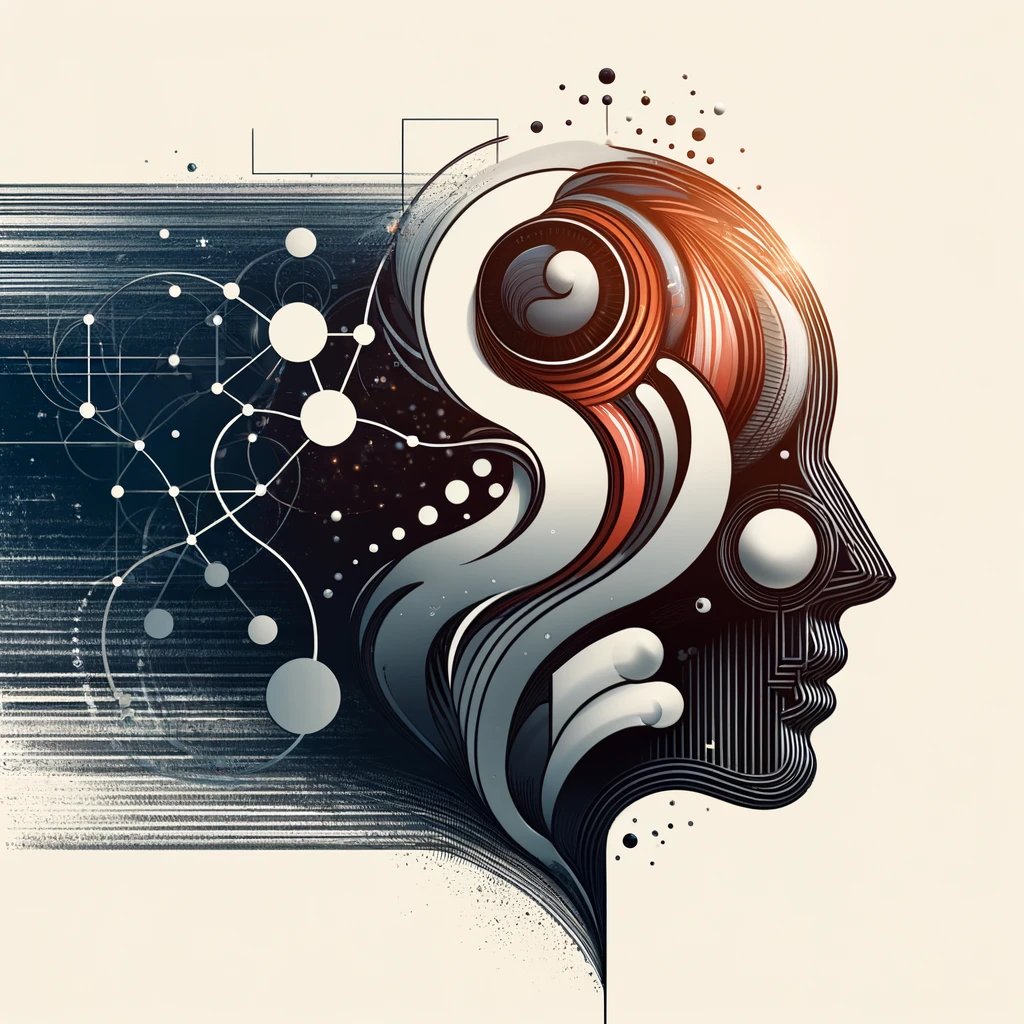



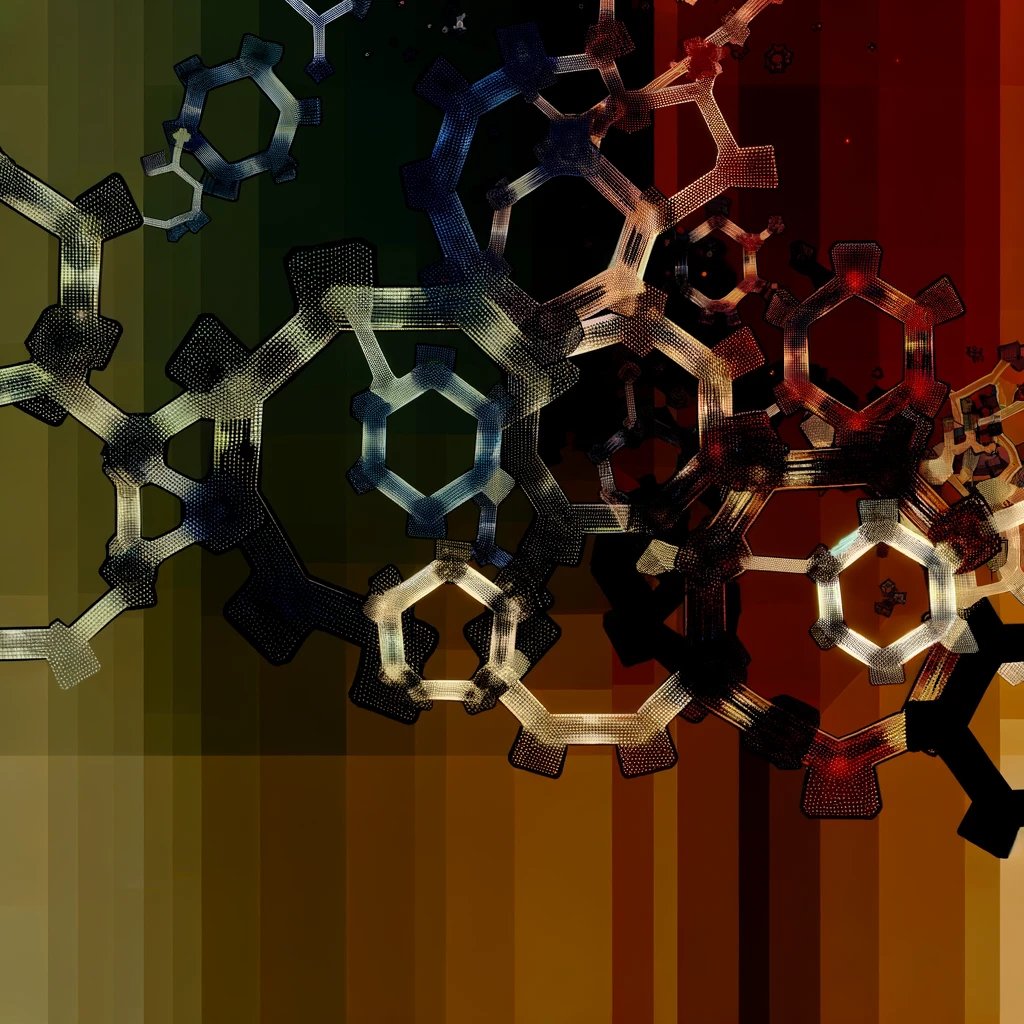

































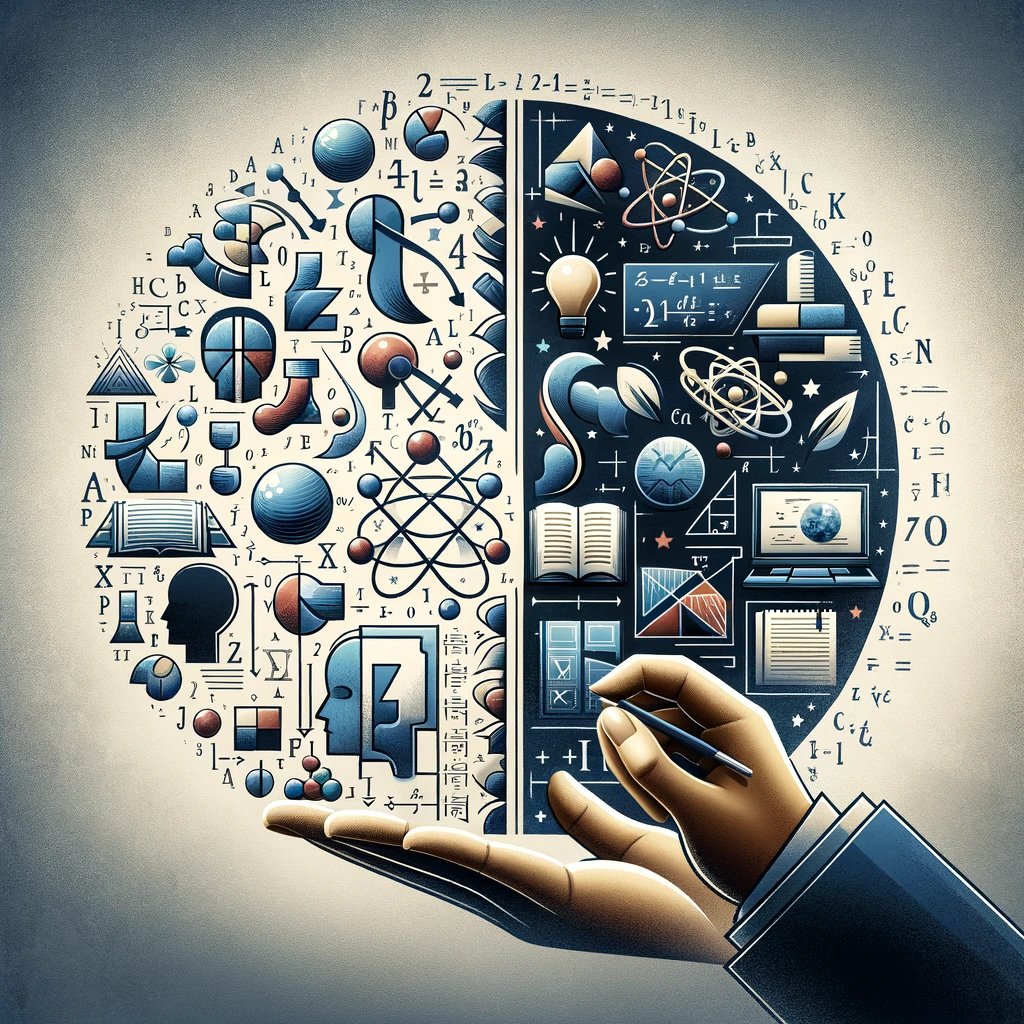

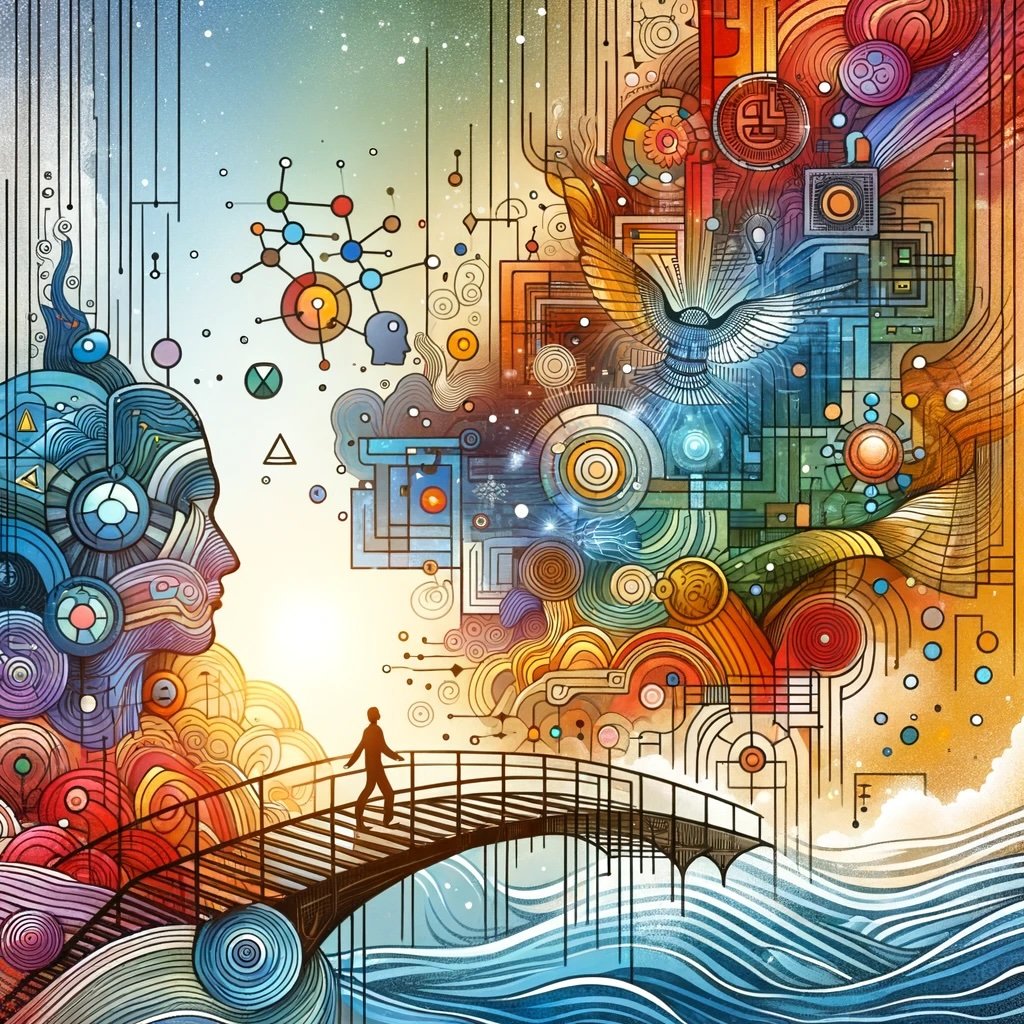














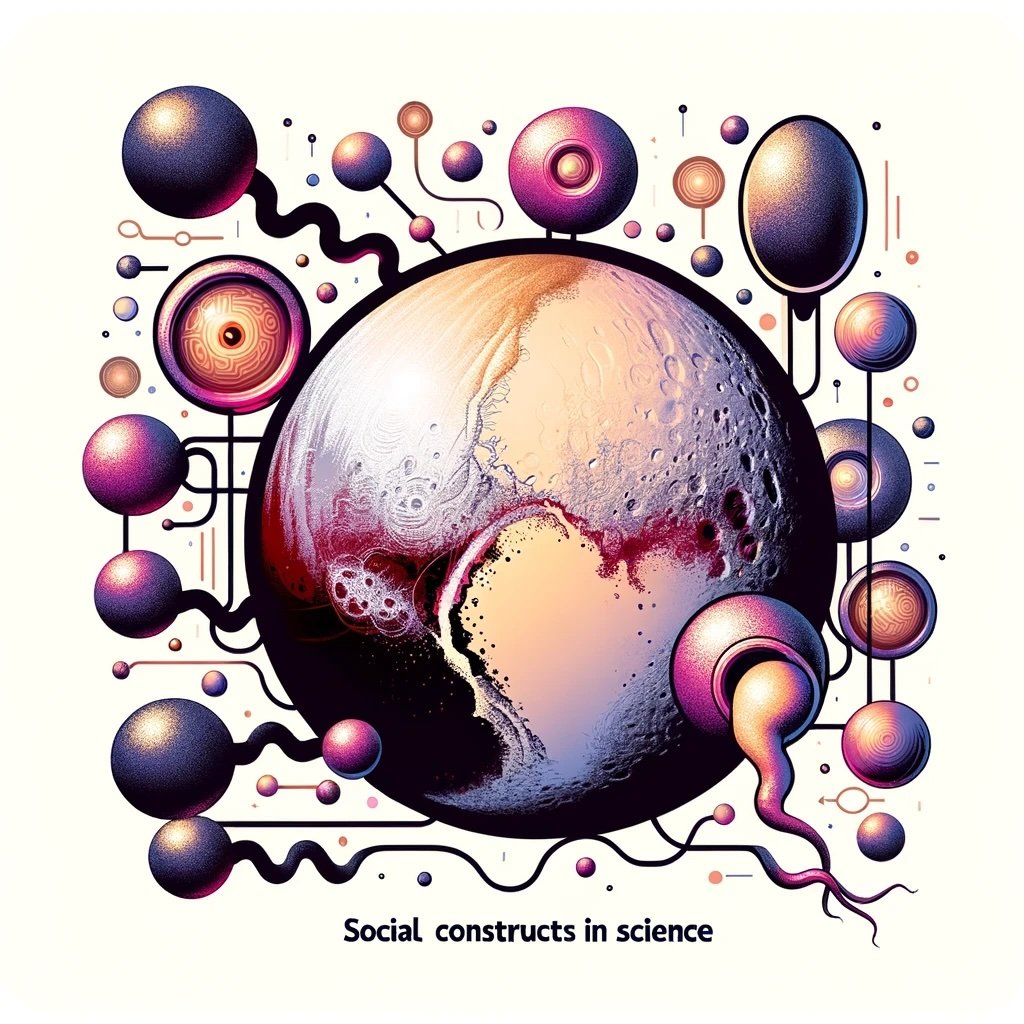
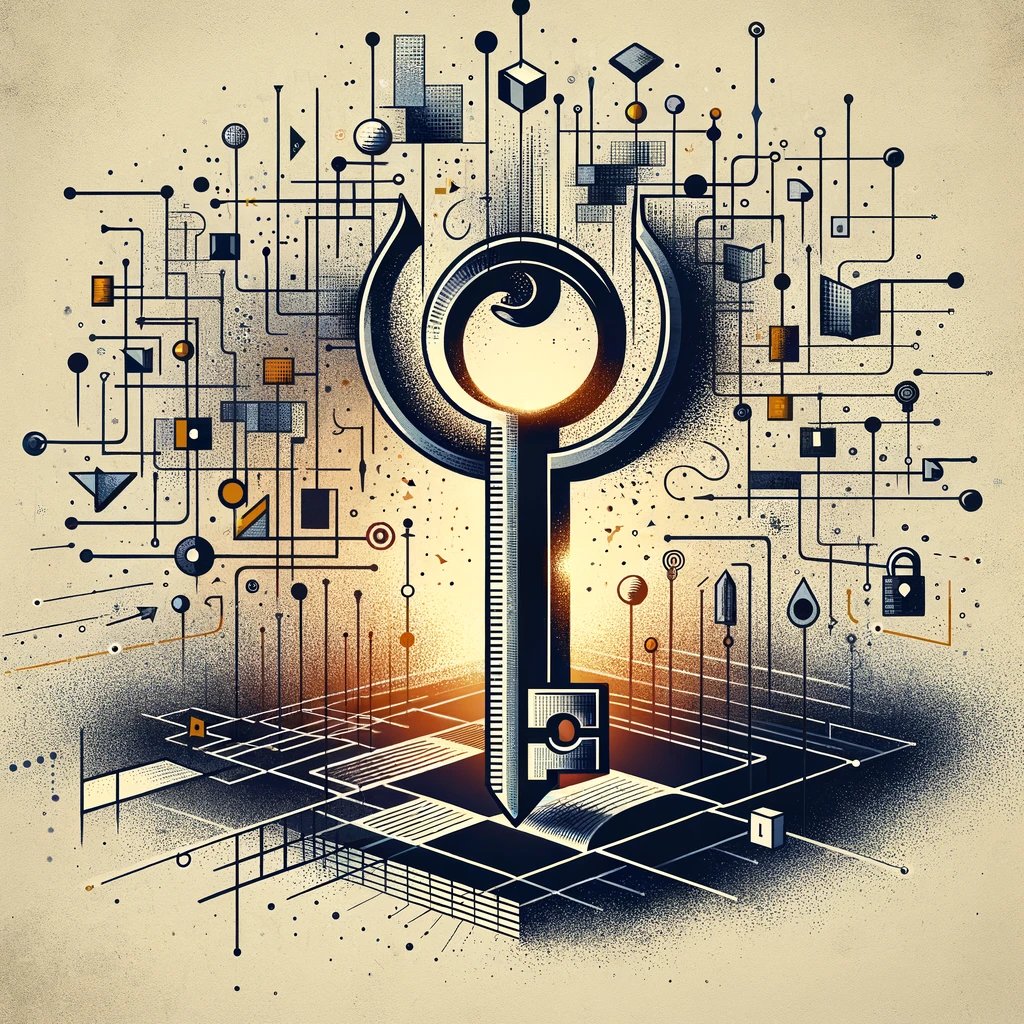










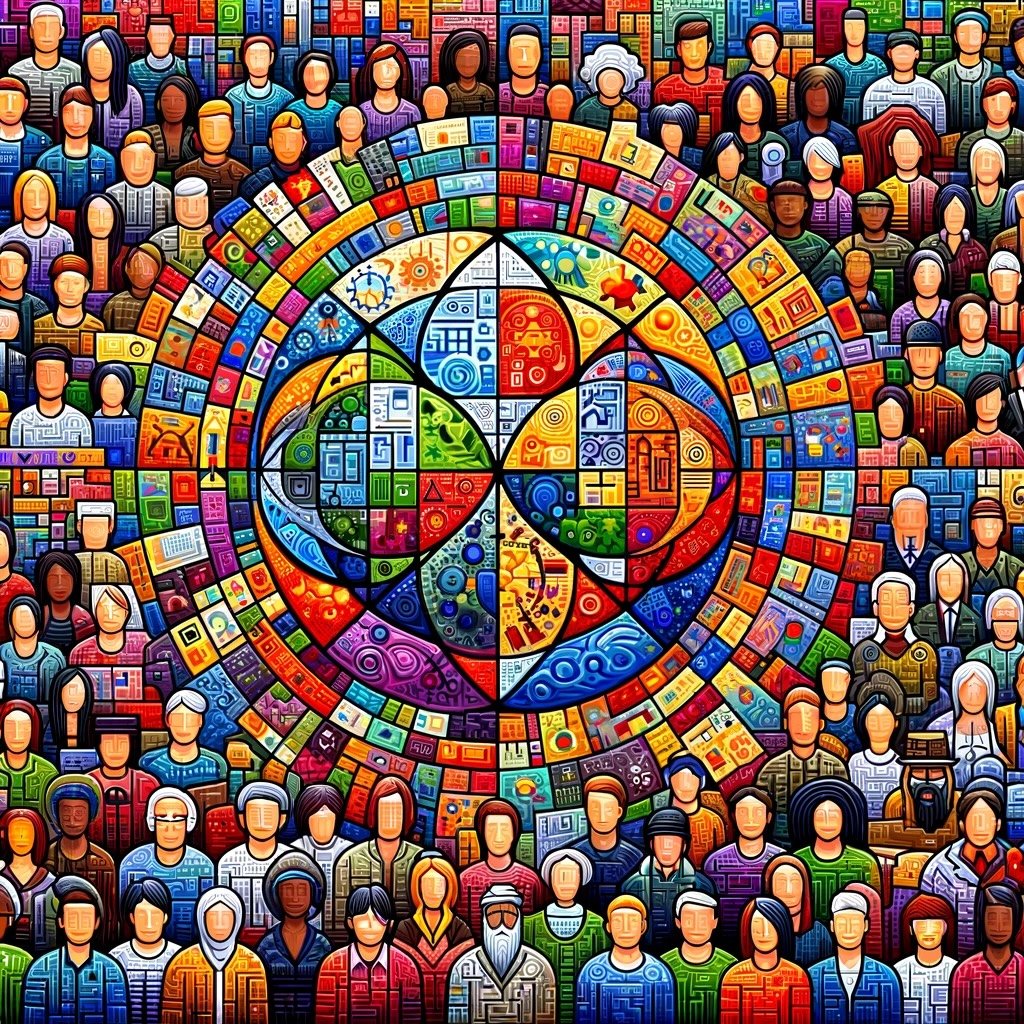

Examining the ways populism exploits incoherence and bad logic to make truth irrelevant, and the dangers this poses to political discourse.